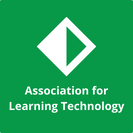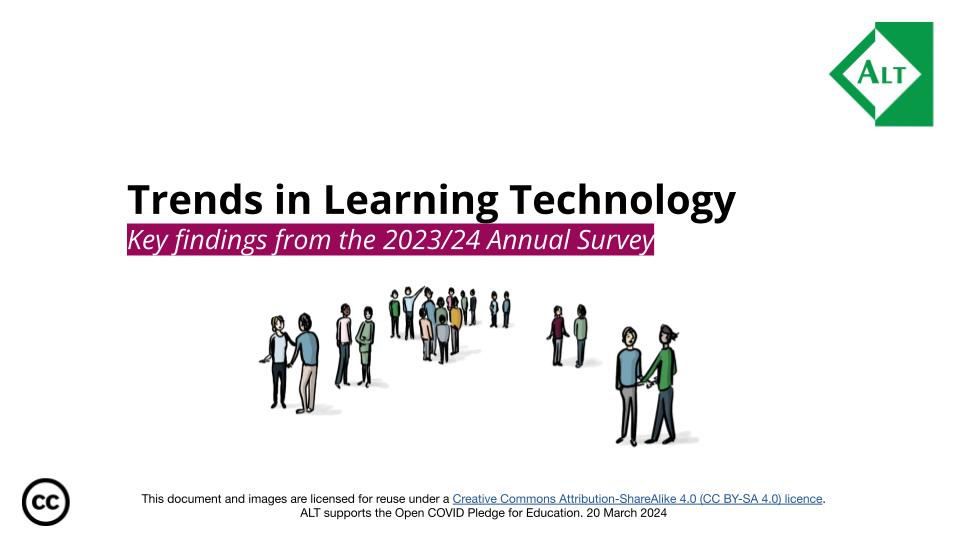Our Annual Survey was established in 2014 in order to help map professional practice and development in Learning Technology and to chart how Learning Technology is used across sectors. It helps us understand current practice to better meet the needs of and represent our Members. The survey is open to all ALT Members, both individuals and organisations. We also welcome responses from all with an interest in Learning Technology. We think it provides a unique insight into how learning technology is used across sectors as well as identifying emerging trends in current and future practice.
2024 Annual Survey
ALT's 2024 Annual Survey closed on 22 February 2024. View the key findings from this year's survey:
- 2023/24 Trends in Learning Technology: ALT Annual Survey Report
- 2023/24 Professional Development in Learning Technology
Download a PDF of 2023/24 Trends in Learning Technology: ALT Annual Survey Report or 2023/24 Professional Development in Learning Technology.
Key findings from previous years
Both the ALT Annual Survey and anonymised survey responses from all years are shared openly in the ALT Repository.
2022/23 Trends in Learning Technology
- 2023: Trends in Learning Technology
- Download the 2023 Trends in Learning Technology Report (PDF)
- 2023: Professional Development in Learning Technology
2021/22 Trends in Learning Technology
This report focuses on how the Learning Technology landscape is changing through a focus on tools and technologies and also professional practice. Our findings provide insight into how blended and hybrid models are becoming the main mode of learning, for 66% of our Members and that student engagement continues to be the number one drive behind the adoption of learning technology.
2021/22 How our profession is changing
This report explores one of the key questions we ask in the survey: how are institutions investing in Technology-Enhanced Learning? We continue to see an increase in investment of over 30% overall, although smaller than the previous year, when 45% of Members reported an increase in their budgets. From 2020 to 2021, investment in permanent posts has increased from 32% to 54%, and for fixed term posts from 34% to 50%, emphasizing the continued and growing demands for Learning Technology professionals in the long term.

